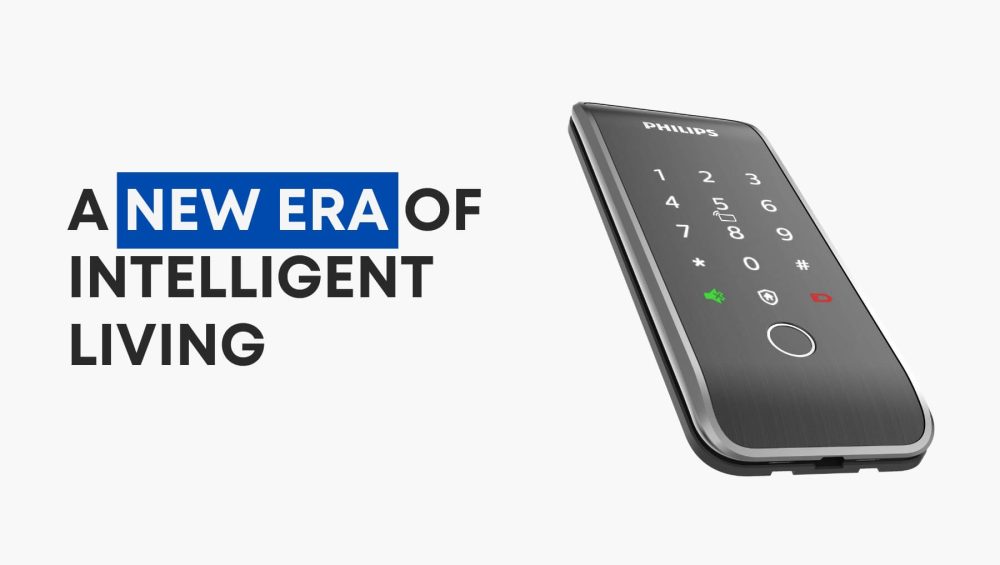In the UAE—known for global innovation and luxurious living—the concept of home security is rapidly evolving. Gone are the days of fumbling for keys. Today, smart locks are central to protecting and simplifying life in everything from high-tech villas to heritage-style estates. These devices merge cutting-edge technology with everyday convenience, offering peace of mind at your fingertips.
Why Smart Locks Are Booming in the UAE
- The UAE’s smart home market is projected to grow by over 14% annually through 2027 .
- Smart locks deliver:
- Keyless convenience—grant or revoke access instantly via mobile app or RFID.
- Remote control—lock/unlock from anywhere with real-time alerts.
- Stylish design—sleek hardware that complements both modern and traditional décor.
- Smart integration—works with lights, cameras, climate control for a seamless smart home experience.
Whether in Dubai Hills mansions or Sharjah’s heritage neighborhoods, residents are choosing digital locks for smarter, safer living.
Top OjiSmart & Philips Smart Locks Now Trending in Dubai
From apartments to villas, here are the top-performing models from OjiSmart and Philips, curated from their Dubai lineup:
1. Oji Code+ Smart Door Lock (Wi‑Fi Version) – AED 1,247
- Access options: Bluetooth app, PIN, RFID, mechanical key, Wi‑Fi gateway (G2) for remote control .
- Why it’s popular: Set up without drilling or wiring; ideal for home offices, maid rooms, or vacation rentals.
- Support: Handles multiple key types and time‑limited access via the Oji App .
2. Oji EVO Smart Lock – AED 1,200
- Access methods: Fingerprint, keypad PIN, Bluetooth, optional Wi‑Fi via gateway .
- Feature: Sleek, slim build with robust weatherproof design and fast installation—perfect for both retrofits and new builds.
3. Oji SecureLock Luxe 5BFP – AED 3,999
- Access allowed via: Fingerprint, PIN, RFID, Bluetooth app, mechanical key .
- Why it leads: Durable, waterproof, and designed for high-traffic villa entrances with comprehensive entry control.
4. Oji HandleLock Elite Plus (5WVD) – AED 2,100
- Access via: Fingerprint, keypad, RFID, plus elegant handle design .
- Perfect for: Interiors or French doors where style matters as much as functionality.
5. Philips EasyKey Alpha / 801 Series – AED 3,000 – 4,500
- Access: Fingerprint, PIN, RFID, and optional app control .
- Demanded features: Stylish push-pull handles, fast Gen 3 mortise mechanism, and weatherproof design suitable for villas and upscale apartments .
Why These Models Stand Out in Dubai
- Rugged and refined: All are rated IP65 or better, built to withstand the UAE’s extremes—dust, sand, and blazing heat.
- Multiple access choices: Fingerprint, PIN, RFID, Bluetooth—whatever suits your lifestyle.
- Simple installation: Retrofit-ready hardware fits a range of door types: wood, aluminum, glass, or villa gates.
- Local uptime: Rapid delivery in Dubai and expert support make installation stress-free.
What This Means for UAE Homeowners
- Total control: Grant guests or staff timed access; monitor live door logs.
- Modern style upgrade: Sleek hardware adds a premium touch to any entrance.
- Increased property value: Smart-enabled homes are more desirable and fetch higher resale or rental prices.
The Future of Smart Locks in Dubai
- Enhanced AI-driven access based on user behavior.
- Advanced biometrics—like palm vein or facial ID—for extra security.
- Cloud key sharing—temporary access via mobile apps.
- Built-in UV and sand resistance for outdoor units.
Final Word
In the UAE, smart locks are reshaping home security—providing a blend of style, control, and peace of mind. Whether you choose a versatile Oji Code+, the elegant Philips 801, or the fully equipped Oji SecureLock Luxe, you’re not just installing a lock—you’re enhancing your way of life.
Upgrade now and step into a smarter, safer future.



